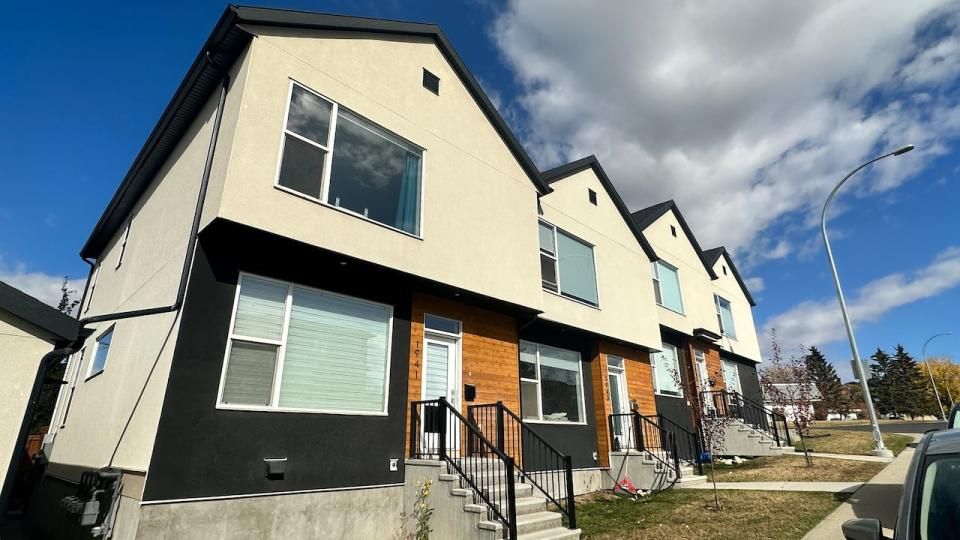اخبار العرب-كندا 24: الأحد 21 أبريل 2024 09:15 صباحاً
In 2018, when Calgary city council was considering a blanket rezoning to allow secondary suites citywide, among the long list of residents to speak against the idea was a gentleman from the southeast community of Parkland.
"I believe council's proposed changes are an attack on the quality of the community that I invested in 28 years ago," he told members of council.
Parkland is zoned almost entirely R-C1, which at the time restricted each lot to a single dwelling unit. If those rules were changed to allow for secondary suites in basements, backyards and above garages, this gentleman feared "non-residential investors will buy up properties" and build so many suites that "our community by default becomes a multi-residential area."
"I don't want [multiple] sets of occupants — rental occupants — living in one property on my street, with the associated noise, loss of privacy, traffic, parking space loss," he said.
Council ultimately went against his wishes and approved the changes. So far, though, his worst fears have yet to materialize.
Six years later, Parkland is now home to a grand total of four suites, according to city data — representing about 0.3 per cent of the roughly 1,400 homes in the community.
It's been a similar story in dozens of communities across Calgary, which have seen incremental change — or no change at all — since the city allowed secondary suites as a discretionary use in R-1, R-C1 and the R-C1L zones. Other communities, however, have seen far more suite development, particularly those in the northeast and north-central parts of the city.
Calgary's experience with the citywide change on secondary suites takes on new relevance today, as city council prepares to debate another blanket rezoning.
On Monday, council will consider a contentious proposal to re-designate virtually all residential areas to allow for duplexes and row houses. People wanting to build these higher-density types of homes would still need to apply for a development permit and be subject to a variety of rules and regulations, but they would no longer need to go before city council to apply for a land-use change.
The proposal is just one plank in the city's broader affordable housing strategy, but it's been the most high-profile and contentious aspect of the plan, with hundreds of citizens registered to speak before council and thousands of written submissions already received.
Like in 2018, the idea of making citywide changes to land-use rules that have been in place for decades has raised concerns and ire among many Calgarians, particularly those who own single-family homes. Commonly cited concerns surround parking, traffic, noise and a desire to maintain the existing character of established communities.
Conversely, the plan has raised the hopes of affordable-housing advocates, even more so now — amid the housing crisis that so many Calgarians are experiencing — than secondary suites did six years ago. (In 2018, remember, Calgary real-estate prices were in decline and rents were a fraction of what they are today.)
Experts who have studied this kind of blanket rezoning in other cities, however, say it doesn't typically lead to the kind of major, rapid change that some people fear and others long for.
What's happened in other cities
Alex Horowitz, director of housing policy initiatives with The Pew Charitable Trusts, a non-partisan think tank based in the United States, says the actual effects of blanket rezoning often end up being far smaller — and slower — than people think they're going to be.
"Jurisdictions which begin allowing row houses and multiple homes per lot only see incremental change," he said. "They don't see big, sweeping changes off the bat."
A high-profile example is Minneapolis, which in 2019 became the first major city in the United States to eliminate single-family zoning, making it possible for duplexes and triplexes to be built on all residential lots.
It was seen as a bold step at the time and garnered national attention across the United States, but Horowitz says it has yet to make much of a difference.
An analysis he co-authored found that "the city's duplex and triplex policy has so far had a modest impact on the housing stock" in Minneapolis. (What's had a much greater effect, according to the analysis, was the city's subsequent decision to eliminate parking requirements for new developments.)
Alex Horowitz is director of housing policy initiatives with The Pew Charitable Trusts, a non-partisan think tank based in the United States. (Screenshot/Google Meet)
To see the longer-term impacts of widespread land-use changes, Calgarians could also look at Houston.
In 1998, the Texas city took a different approach to boost density: by reducing minimum-lot-size requirements from 5,000 square feet to 1,400 square feet in the city centre. In 2013, it expanded the policy to cover a wider area.
"That had the effect of producing about 80,000 new townhouses over the course of 25 years in Houston," Horowitz said.
"And we see [today], of the largest cities in the U.S., Houston is the most affordable. And the new townhouses cost much less than single-family detached houses. And they tend to be affordable to families earning around the area median, which is not true in other large cities."
That change, however, was decades in the making.
Tinkering, fast and slow
Calgary's experience with secondary suites illustrates how blanket rezoning, which creates citywide change on paper, doesn't lead to immediate and sweeping change, in practice.
While the city's suites registry (which was made mandatory as part of the changes in 2018) has now grown to more than 13,000 units, the vast majority are located in land-use zones where suites were already allowed prior to the blanket rezoning.
From 2019 to 2023, the city saw an average of 566 suites added to R1, R-C1 and R-C1L zones, versus 1,614 in other zones.
The growth in registered suites is "almost exactly on track" with what city planners had expected when the rezoning went through in 2018, said Joshua Howes, the city's program manager for secondary suites.
He noted roughly half of the suites now on the city's registry already existed — physically, but illegally — and were simply brought up to code and made official in the past six years.
The uneven distribution of suites in R1, R-C1 and R-C1L zones — with a heavy concentration in the north and northeast, and relatively few in other parts of the city — has been driven by "straight market demand," Howes added.
Years-long process
Should Calgary go ahead with blanket rezoning for row houses, Horowitz says we shouldn't expect overnight or citywide change, either.
Developing a basement suite (or bringing an illegal one up to code) is a much smaller construction project than building a brand-new duplex or row housing, especially in developed neighbourhoods full of single-family homes.
"Depending on the jurisdiction, it's rare to see more than one per cent of lots converted in any given year," Horowitz said.
That's hardly enough to solve the city's affordable housing crisis in one fell swoop, or to render a community like Parkland unrecognizable to its longtime residents overnight.

An example of row housing in Calgary. (Robson Fletcher/CBC)
But that's not to say it doesn't matter. As Houston has seen, incremental changes can add up over time to have a profound effect later on.
More immediately, for a Calgarian opposed to the changes who happens to live next door to a bungalow that gets replaced by a row house, it matters right away. For someone looking desperately for an affordable place to live, the ability to move into that new row house certainly matters, as well.
That's the tension in the debate that council is about to have — again — when it comes to blanket rezoning.
Emotions tend to run high in these debates, so it may help to remember that change, if it comes, will be a long time coming. Neither opponents' worst fears nor advocates' highest hopes are likely to be realized any time soon.
تم ادراج الخبر والعهده على المصدر، الرجاء الكتابة الينا لاي توضبح - برجاء اخبارنا بريديا عن خروقات لحقوق النشر للغير






